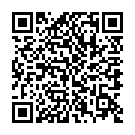|
|
|
| Module code: MST2.EMS |
|
|
4VU (4 hours per week) |
|
5 |
| Semester: 4 |
| Mandatory course: yes |
Language of instruction:
German |
Assessment:
Written exam 120 min.
[updated 05.10.2020]
|
MST2.EMS (P231-0041) Mechatronics and Sensor Technology, Bachelor, ASPO 01.10.2019
, semester 5, mandatory course
MST2.EMS (P231-0041) Mechatronics and Sensor Technology, Bachelor, ASPO 01.10.2020
, semester 4, mandatory course
|
60 class hours (= 45 clock hours) over a 15-week period.
The total student study time is 150 hours (equivalent to 5 ECTS credits).
There are therefore 105 hours available for class preparation and follow-up work and exam preparation.
|
Recommended prerequisites (modules):
MST2.ELE Electronics
MST2.IN1 Computer Science for Engineers 1
MST2.IN2 Computer Science for Engineers 2
[updated 12.04.2021]
|
Recommended as prerequisite for:
|
Module coordinator:
Prof. Dr.-Ing. Barbara Hippauf |
Lecturer: Prof. Dr.-Ing. Barbara Hippauf
[updated 01.10.2020]
|
Learning outcomes:
After successfully completing this course, students will be able to analyze simple to moderately complex requirements / tasks in embedded systems and describe the resulting sub-tasks. Based on this analysis, they will be able to create a system design, i.e. select a suitable microcontroller and develop, test and commission the necessary firmware in the C programming language. Students will be familiar with the structure and function of microcontrollers and know how to integrate them into a circuit. They will be able to implement project-specific requirements in terms of energy and cost efficiency.
[updated 05.10.2020]
|
Module content:
Principles of embedded systems
Basic structure of a microcontroller (CPU, peripherals, memory)
Tools for cross-target development, debuggers
Specific aspects of software development on limited platforms, weighing up performance/memory requirements
Programming style, best practices, important algorithms and data structures, structure of the software / firmware
Hardware-related software development, at register level
Internal peripherals devices typically found in microcontrollers (UART/SPI/I2C/CAN/GPIO/Timer&Counter/EEPROM/Clock,...)
How a microcontroller is connected to its environment ("embedding")
Security aspects (safety/security)
Energy efficiency
[updated 05.10.2020]
|
Teaching methods/Media:
Lecture with mandatory tutorials
[updated 05.10.2020]
|
Recommended or required reading:
http://openbook.rheinwerk-verlag.de/c_von_a_bis_z/
Rüdiger Asche: Embedded Controller: Grundlagen und praktische Umsetzung für industrielle Anwendungen
Bringmann, Lange, Bogdan: Eingebettete Systeme: Entwurf, Modellierung und Synthese
Wiegelmann: Softwareentwicklung in C für Mikroprozessoren und Mikrocontroller: C-Programmierung für Embedded-Systeme
Passig, Jander: Weniger schlecht programmieren
[updated 05.10.2020]
|


